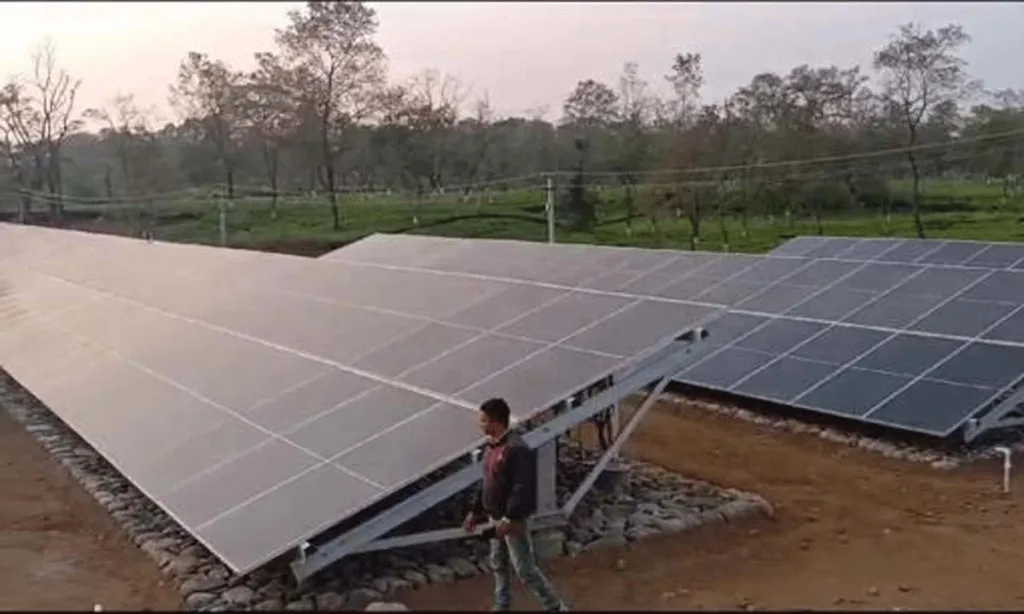North Bengal: Tea garden comes up with mega solar power generation plant

For the first time in North Bengal, a tea garden has come up with an elaborate solar power generation plant that generates enough electricity in the garden for its operations and supplies electricity to bungalows and quarters throughout the area.
Chengmari tea garden in Nagarakata block of Jalpaiguri district is spread over 1,800 hectares. With 1,450 hectares of tea plantations, it is known as Asia’s largest tea plantation in terms of plantations. There are 5,000 workers in the garden.
“We have installed solar panels which can generate enough electricity to run the factory, carry out irrigation and supporting works and can also provide electricity to workers’ quarters, staff accommodation, bungalows, offices and other similar places. This is the first time that a tea garden in this region has come up with such a big solar power system,” said garden manager Gajendra Shishodiya.
490 solar panels have been installed on one hectare of land in the garden. The panels can provide 1,040 kilowatts of power. About Rs 4.5 crore has been spent on the project.
“The panels here are bi-faced, with both sides capable of generating electricity. The money we have spent on the project can be recovered with a huge drop in our electricity bills in the next five or six years. This money can be spent on gardens and worker welfare,” said Shishodiya.
In North Bengal, solar panels have been installed in many gardens for water heating and other purposes. But this is the first time that a park has come up with such a big project to generate non-conventional power for multiple uses.
Garden sources said that the garden will be able to save about Rs 9 on every unit of electricity consumption.
“We are now using solar energy to run 15 water pumps which are being used to sprinkle water on the tea bushes. A preliminary estimate suggests that by using solar energy we will be able to save Rs 70 to 80 lakh as electricity bill. This means that after five or six years our solar energy will be free. We just have to maintain the panels,” said a source.
As of now, 3,500 to 4,000 units of electricity is generated daily by the panels, which is sent to the factory and from there supplied to other locations in the garden.
“The factory is closed right now (due to low season). Once production starts, we are confident that we can run the production on solar power,” the source said.
The solar energy initiative has received praise from tea workers. Ricky Karmakar, secretary of the Chengmari unit of the Trinamool Cha Bagan Workers Union, called it a big step by the garden management.



